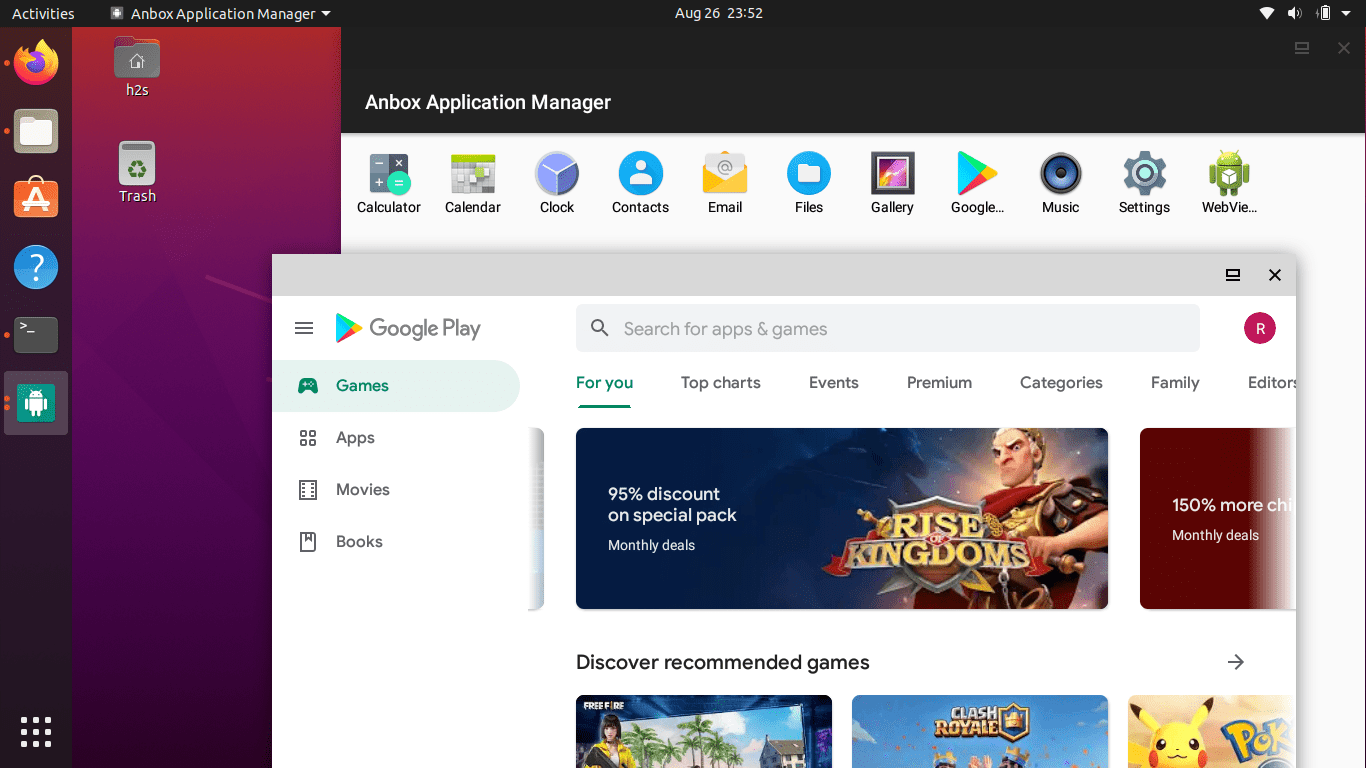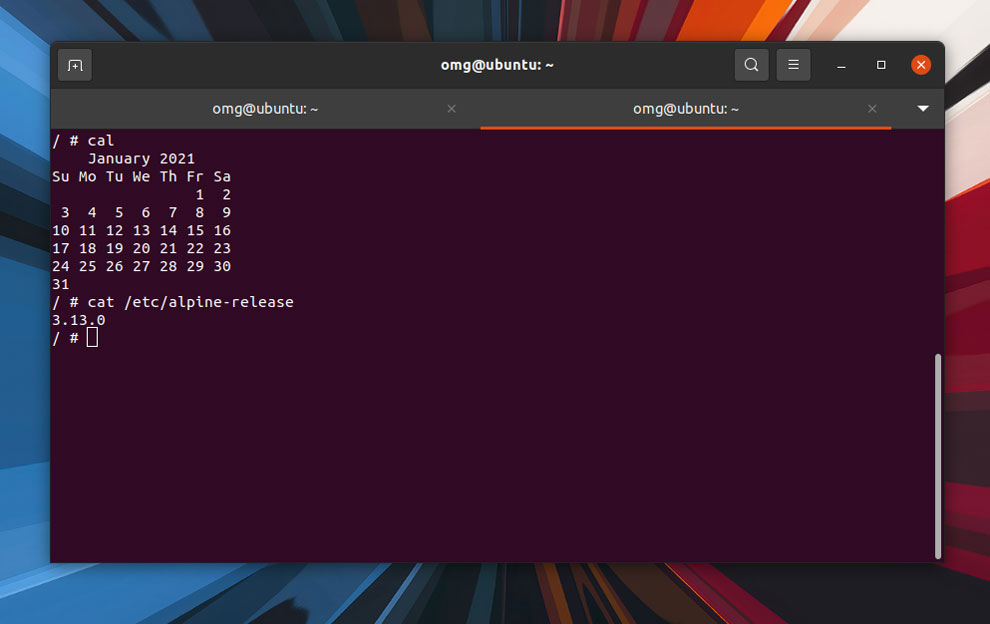Ubuntu Groovy 20.10; Ubuntu Focal 20.04 (LTS) Ubuntu Bionic 18.04 (LTS) Ubuntu Xenial 16.04 (LTS) Docker Engine is supported on x8664 (or amd64), armhf, and arm64 architectures. Uninstall old versions. Older versions of Docker were called docker, docker.io, or docker-engine. If these are installed, uninstall them.
- Ubuntu is a Debian-based Linux operating system based on free software.
- The release of Ubuntu 20.04 LTS was April 23, 2020. On the same day, Canonical added full support for Ubuntu Server 20.04 on all of the Raspberry Pis that we certify. Users can flash 20.04 to their Raspberry Pi knowing Canonical guarantees it will ‘just work’ and can make the most out of all of the new features added with 20.04.
The Dell XPS 13 Developer Edition is now available in North America and selected EMEA countries* certified with Ubuntu 20.04 LTS pre-installed to work straight out of the box. This is the first system available on the market with Ubuntu 20.04 LTS, released in April 2020, and continues the long-standing partnership with Canonical which is designed to offer developers their ideal laptop based on input received from the community.
“We’re delighted to see the first Dell systems ship with Ubuntu 20.04 LTS. Enterprises are increasingly equipping their developers and engineers with the operating system of their choice ensuring high end-user productivity. Ubuntu 20.04 LTS on the latest Dell XPS 13 Developer Edition offers the performance developers demand with the assurance of security and long term support that IT management needs,” said Martin Wimpress, Director of Desktop Engineering at Canonical.

“Dell and Canonical have partnered since the 2012 launch of Project Sputnik to arm developers with Ubuntu systems tailored for usability, stability and performance,” said Barton George, Founder of Project Sputnik and XPS Developer Edition, Dell Technologies. “Ubuntu 20.04 LTS continues our long-standing partnership with the Linux developer community to provide Ubuntu certified hardware that works out-of-the-box, enabling the highest levels of productivity.”
Dell and Canonical’s engineering teams perform thousands of rigorous tests to ensure that Ubuntu 20.04 LTS and all of its subsystems (Wi-Fi, Bluetooth, fingerprint authentication, etc.) work flawlessly from first boot. As with all LTS releases, Canonical will continue to provide security updates for up to ten years and perform regression testing throughout its lifecycle.
Highlights of Ubuntu Desktop 20.04 LTS:
- GNOME 3.36 adding improved user workflow and performance enhancements
- New and updated applications including LibreOffice 6.4, Thunderbird 68.7.0
- Over 6,000 snaps from the Snap Store including Visual Studio Code, Slack, Spotify, Plex and the JetBrains portfolio
- New desktop Yaru default theme with light and dark modes
- Improved settings for WiFi, wallpaper and application groups in the ‘Activities’ overview
Features of the Dell XPS 13 Developer Edition:
Dockerfile Ubuntu 20.04 Lts
- Ubuntu Desktop 20.04 LTS pre-loaded
- Precision crafted from CNC machined aluminum, aerospace-inspired carbon fiber or woven glass fiber in a durable, compact and lightweight design
- Larger 16:10 display, edge-to-edge keyboard, with larger keycaps and a larger touchpad
- Eyesafe® display technology reduces harmful blue light and maintains vivid color
- 10th generation Intel® Core™ 10nm mobile processors and up to 32 gigabytes of RAM
- Fingerprint reader
- Wi-Fi 6 ability (Killer™ AX1650 built on Intel Wi-Fi 6 Chipset)
- Targeting up to 18 hours and 49 minutes of battery life on FHD+ to keep you powered on the go
For more information on what’s new in Ubuntu Desktop 20.04 LTS, check out the release notes for detailed information or our blog.
The Dell XPS 13 Developer Edition with Ubuntu 20.04 LTS is available as of June 23 2020, starting at US $1,099.99.
*EMEA Online: UK, Ireland, Germany, Austria, France, Italy, Spain, Switzerland (French and German), Belgium, Netherlands, Sweden, Norway, Denmark.
EMEA Offline: Czech Republic, Denmark, Emerging countries, Finland, Greece, Luxembourg, Poland, Portugal, Russia, Slovakia, Turkey, South Africa.
Talk to us today
Interested in running Ubuntu in your organisation?
Newsletter signup

Docker is a combo of ‘platform as a service’ products and services which use OS virtualisation to provide software in packages called containers.
Containers contain everything an app, tool or service needs to run, including all libraries, dependencies, and configuration files. Containers are also isolated from each other (and the underlying host system), but can communicate through pre-defined channels.
This introduction to Docker video will give you a quick top-level overview of the tech and how it works:

Because Docker is open source software it’s not only free to use, but free to adapt, extend, hack, or build on. In this guide I cover installing Docker on Ubuntu 20.04 LTS (Focal Fossa), but the same steps may also work on older versions of Ubuntu, including Ubuntu 18.04 LTS.
In this post you will learn how to install Docker from the regular Ubuntu repository, how to enable Docker to start automatically at system boot, and how to install Docker images and run them locally.
But this isn’t a deep dive. This tutorial is intentionally short and to the point. This is so you spend less time reading and more time doing.
Install Docker from Ubuntu Repository
There are two hard requirements to install Docker on Ubuntu 20.04:
Docker Ubuntu 20.04 Lts Debian
- You need to have
sudoaccess - You need to be connected to the internet
If you’re managing or setting up an Ubuntu server then you (probably) meet both of these requirements already, but do check before you begin.
Step 1: Install Docker from the main Ubuntu repository. Do this using the apt command and the docker.io package name (note: the package name is not simply ‘docker’):
Ubuntu will download the latest version of Docker from its archives, unpack it, and install it on your system.
Step 2: Make Docker start automatically on system boot:
Step 3: Test it.
Now that Docker is installed and running you should verify that everything is working okay. This can be done using the hello-world app. From the command line run:

When you run this command you’ll see a lengthy message informing you that the ‘installation appears to be working correctly’.
But look closely at the message:
You’ll notice something interesting near the start: Docker was ‘unable to find’ the a ‘hello-world’ image. But instead of quitting it searched for and downloaded it from Docker Hub.
Which leads us neatly on to…
Step 4: Find and install Docker images.
Now you’re set-up the world (or rather the Docker ecosystem) is your oyster, and Docker Hub your port of call. Docker Hub is billed as ‘the world’s largest library and community for container images’. Any image available on Docker Hub can be installed on your system too.
Let’s look at how to do that.
To search for an image on Docker Hub run the docker command with the search subcommand, like so:
For example, I want to search for Alpine Linux on Docker Hub so I run docker search alpine. A list of matching images (which match the term alpine) will appear. I want the official Alpine image so I look in the OFFICIAL column for the word OK
When you find the image you want to use you can download it using the pull subcommand, For example, to install Alpine Linux I run sudo docker pull alpine.
To run a downloaded image you need to add the run subcommand and the name of the image, e.g., sudo docker run alpine.
If you want to run an image as a container and get instant ‘interactive terminal’ shell access add the -it flag. For example: I run sudo docker run -it alpine and it drops me straight into the Alpine container, ready to work:
To exit the ‘interactive terminal’ type the word exit and hit enter.
Check out the Docker Docs page for a wealth more info on how to use, admin, manage, and maintain your containers.
A couple of useful commands to know include docker ps -a to list all images you’ve used (and see their container ID/name); docker stop {container id} to close an image down; and when you’re done with a container remove it using the docker rm command, again adding the the container ID/name at the end.
Going Further
Docker Ubuntu 20.04 Lts Image
In this guide we looked at installing Docker on Ubuntu 20.04 and getting official images installed. But this is only the beginning of what possible with Docker.
Docker Ubuntu 20.04 Lts Ubuntu
One possible avenue to explore is installing Docker rootless. This is an experimental feature and not (yet) easy to enable. But the effort required to set it up is worth it if you’re concerned about security and stability.
Ubuntu Server 20.04 Lts Docker
If there are topics you want to see a similar to-the-point tutorial on (be it Docker related or otherwise) do drop a note down in the comments or via my usual e-mail.
